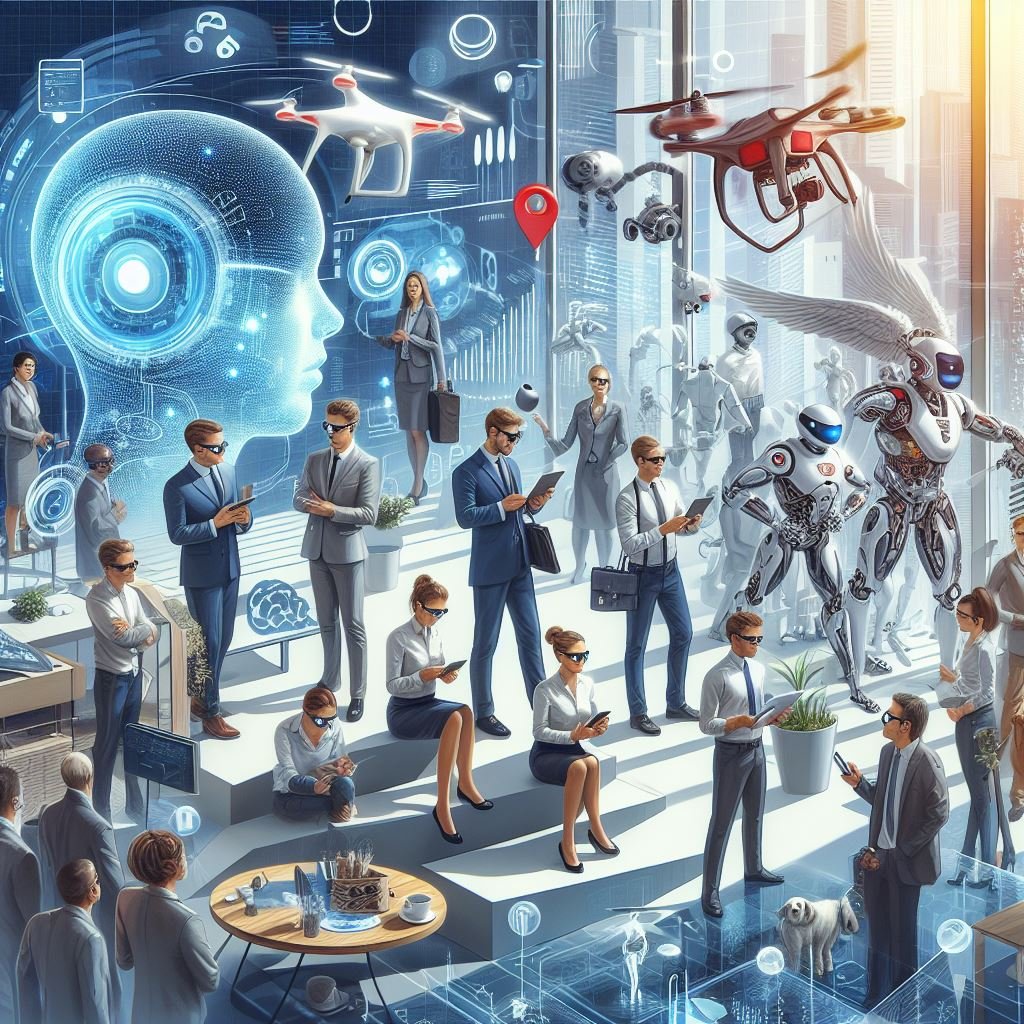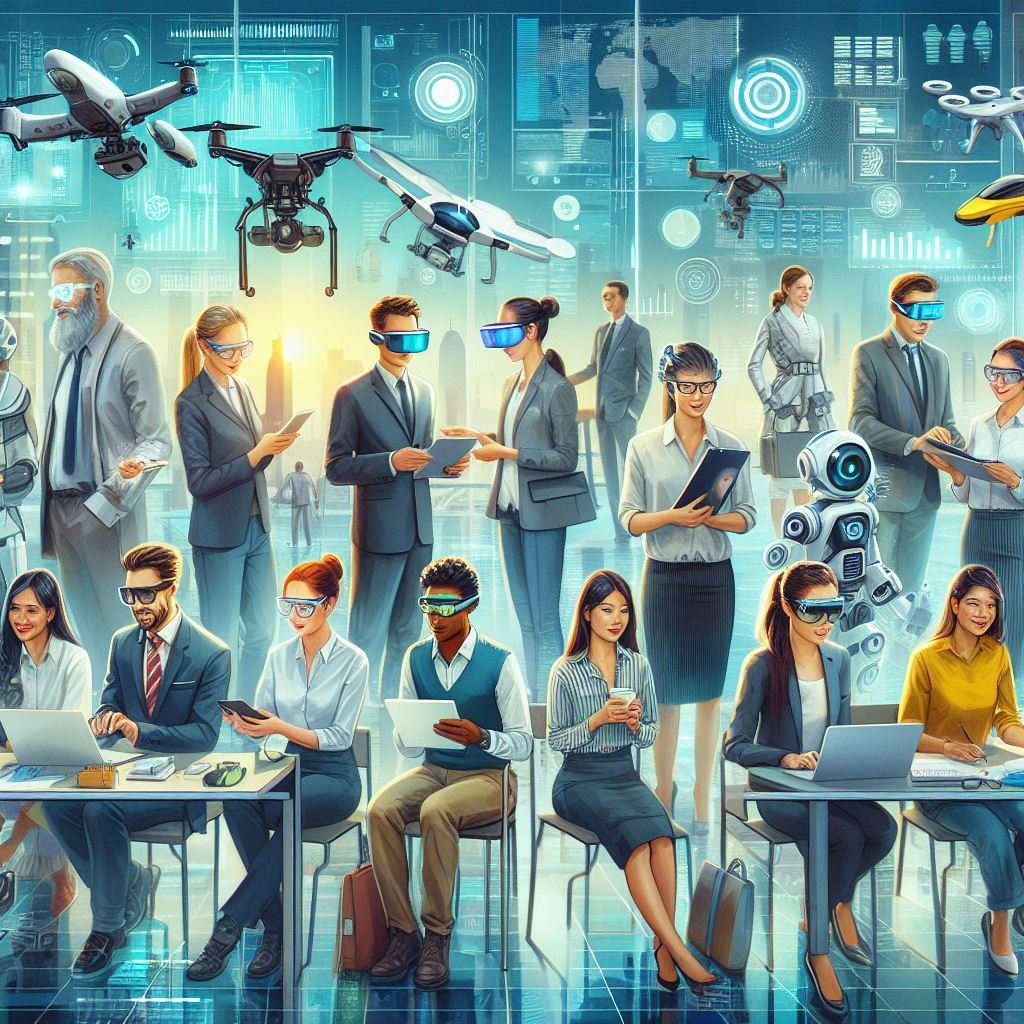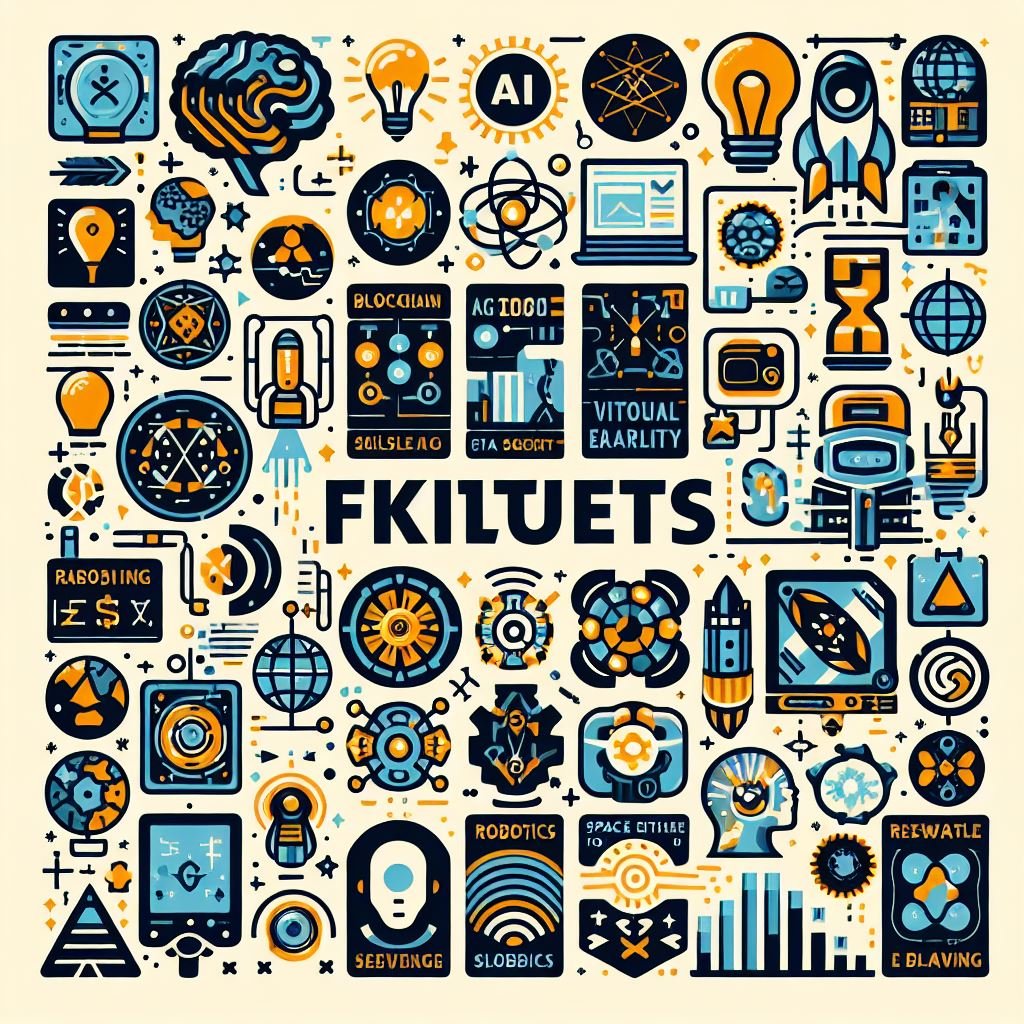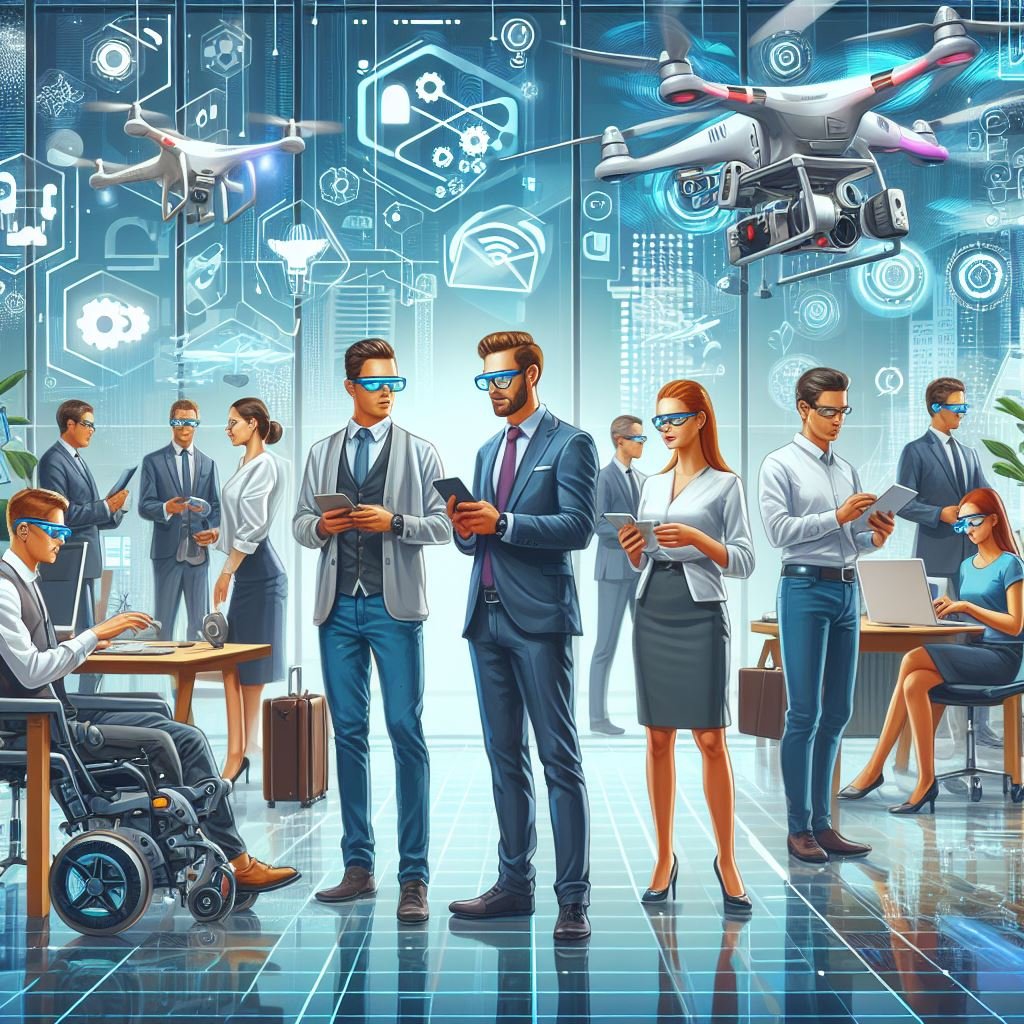Introduction
The evolution of the workplace is undergoing a revolutionary transformation driven by technological advancements. As we stand at the threshold of the future of work, it becomes imperative to explore the role of artificial intelligence (AI) in shaping our professional landscapes.
The Current State of Work
Before diving into the future, it’s crucial to understand the present. The traditional 9-to-5 model is giving way to more flexible arrangements, facilitated by AI-powered tools. Businesses are adapting to these changes to enhance productivity and employee satisfaction.
AI Integration in Daily Tasks
The future of work involves a seamless integration of AI into daily tasks. From automating routine processes to providing data-driven insights, AI is becoming an indispensable part of the modern work environment. This shift is enhancing efficiency and allowing human workers to focus on more creative and complex aspects of their roles.
Collaborative AI: A Team Player
One of the key aspects of the future of work is the collaboration between humans and AI. As AI systems become more sophisticated, they serve as valuable teammates, assisting in decision-making, problem-solving, and innovation. This collaborative synergy promises a more effective and innovative workforce.
Skillsets for the Future
The changing landscape of work demands a shift in skillsets. Adaptability, critical thinking, and digital literacy are becoming essential. AI is not replacing jobs but transforming them, necessitating a continuous commitment to learning and upskilling.
The Impact on Industries
Different industries are experiencing unique transformations due to the integration of AI. From healthcare to finance, the future of work is reshaping how professionals operate, ultimately leading to more efficient and sustainable practices.
Challenges and Ethical Considerations
As AI becomes more prevalent in the workplace, it brings forth challenges and ethical considerations. Balancing automation with job security, ensuring unbiased algorithms, and addressing privacy concerns are critical aspects that need careful consideration.
The Role of AI in Decision-Making
AI is increasingly playing a pivotal role in decision-making processes. From predictive analytics to risk assessment, the ability of AI to analyze vast amounts of data is revolutionizing how organizations make informed decisions, thereby influencing the trajectory of the future of work.
Uses of AI in the Workplace
| Use Case | Description |
|---|---|
| Automation of Repetitive Tasks | AI streamlines mundane tasks, freeing up time for employees to focus on more strategic activities. |
| Enhanced Decision-Making | AI provides data-driven insights, aiding in better decision-making processes. |
| Employee Productivity | AI tools improve efficiency and productivity by automating workflows and reducing manual effort. |
| Skill Development | AI-powered learning platforms facilitate continuous skill development for employees. |
Conclusion
In conclusion, the future of work is intricately tied to the integration of AI. Embracing this evolution entails adapting to new ways of working, upskilling, and fostering a collaborative relationship between humans and technology. The transformative power of AI is reshaping industries, and those who navigate this shift with agility will be better positioned to thrive in the ever-evolving landscape of work. The future of work is not a distant destination but a continuous journey of adaptation and innovation.




